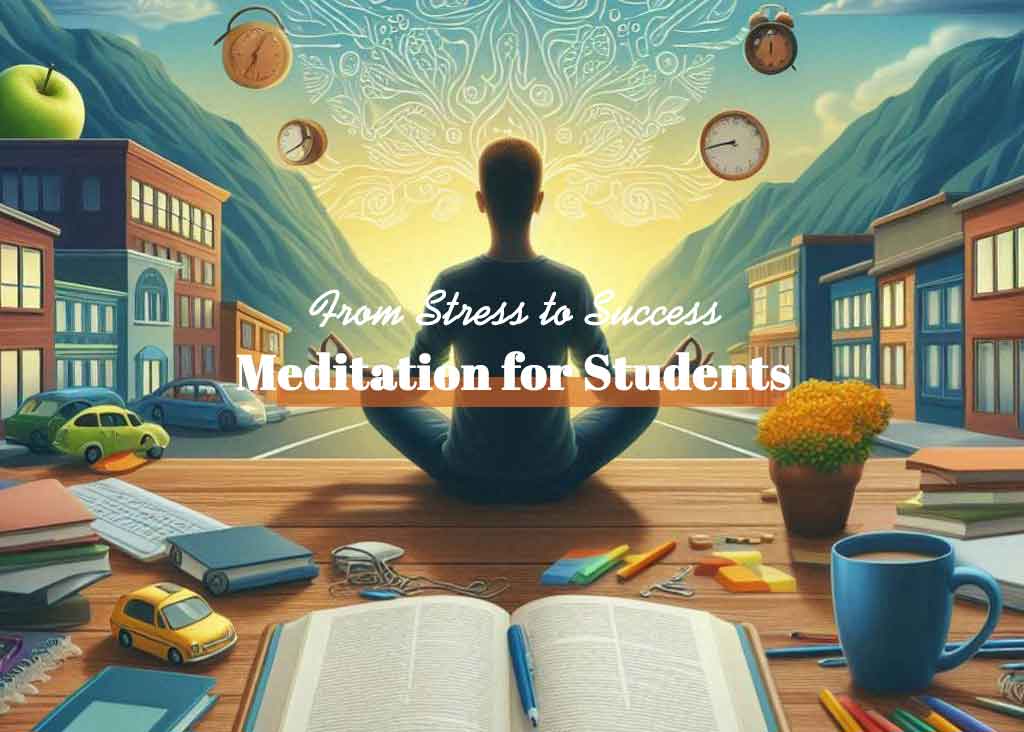From Stress to Success: Meditation for Students

Meditation is a practice that has stood the test of time, helping individuals connect with their inner selves, achieve relaxation, and enhance focus. In student life, where distractions are everywhere and the pressure to perform academically is high, meditation can be a secret weapon for improving concentration and mental clarity.
Why Students Should Meditate
Reducing Stress
Student life is often saturated with stress from exams, assignments, and personal responsibilities. Regular meditation helps in reducing cortisol, the stress hormone, and fosters a sense of calm. Lower stress levels automatically improve focus and mental presence.

Boosting Cognitive Abilities
Meditation enhances memory, cognition, and executive functioning by strengthening neural connections in the brain. This directly impacts a student's ability to focus on learning and retain information.
Better Emotional Health
Being overwhelmed emotionally can detract from academic performance. Meditation helps regulate emotions, increasing self-awareness and emotional stability, essential traits for students navigating both academic and personal situations.
Types of Meditation for Students
Mindfulness Meditation
This involves focusing on the present moment without judgment. For students, it means channeling thoughts away from the chaos of multitasking and back to the task at hand.
Guided Meditation
Using audio or video guidance can make meditation easier for beginners. These guided sessions often focus on improving focus or relaxation.
Breathing Techniques
Practicing controlled breathing is a simple yet effective meditative practice. It reduces stress and improves concentration over time.

How to Start Meditation as a Student
- Set a Regular Schedule: Commit to meditating daily, even if only for five minutes, to build a routine.
- Create a Quiet Space: Find a distraction-free area where you can meditate without interruptions.
- Focus on Breathing: Breathe in deeply, hold for a moment, and exhale slowly. Concentrating on your breath anchors your mind.
- Use Apps or Online Resources: Leverage modern tools like meditation apps to get started with ease.
Bonus Tips for Maximizing Meditation
- Start Small: Begin with short sessions and gradually extend the duration.
- Be Consistent: Consistency matters more than intensity in building a habit.
- Don’t Judge Yourself: It's normal for your mind to wander at first; gently guide it back to the meditation.
The Benefits You'll See Over Time
Students who incorporate meditation into their routines often notice improved concentration, reduced procrastination, and better self-discipline. They’re also likely to approach exams and academic tasks with a calmer, more focused mindset. Over time, meditation fosters resilience and better mental health, enabling you to thrive in an academic environment.
Adopting meditation as a daily habit is a valuable tool for any student. Whether you’re trying to focus better in class, recall information for an exam, or simply maintain a balanced mental state, meditation offers proven benefits to help you succeed.
Join our BeejManta meditation community today and take the first step towards a healthier, more balanced you.
Note: This is for informational purposes only and should not replace professional medical advice. Always consult a healthcare professional before starting any new treatment or session.
Photo: @Freepik, @unsplash @MicrosoftDesigner

